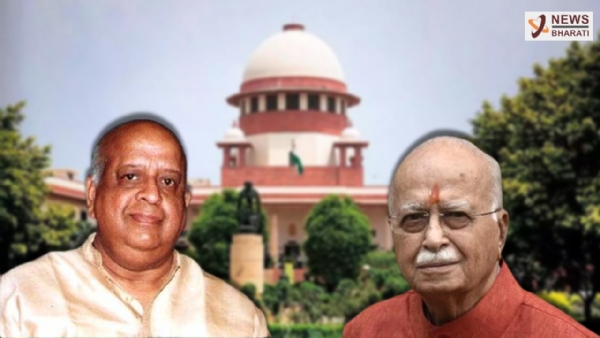SC remembers TN Seshan and LK Advani while hearing about the process to appoint CEC and ECs
SC also termed the exploitation of the "silence of the Constitution" and the absence of a law governing the appointments of ECs and CECs a "disturbing trend".
Total Views | 191
The Supreme Court ( SC ) of India on Tuesday (Nov 22) said the Constitution has vested enormous powers on the "fragile shoulder of the chief election commissioner and the two election commissioners", while the Apex court remembered the contribution of late T N Seshan.

A five-judge Constitution bench, headed by Justice K M Joseph was hearing the about the process of appointment of India's Chief Election Commissioner, when the bench said it aims to put a system in place so that the "best man (most capable)" is selected as the CEC. The bench that also comprised of justices Ajay Rastogi, Aniruddha Bose, Hrishikesh Roy and C T Ravikumar remarked that;
“"There have been numerous CECs and T N Seshan happens once in a while. We do not want anyone to bulldoze him. Enormous power has been vested on the fragile shoulder of three men (two ECs and the CEC). We have to find the best man for the post of CEC. The question is how do we find that best man and how to appoint that best man." ”
Seshan was a former cabinet secretary to the Union government and was appointed as the election commissioner (EC) on December 12, 1990 with a tenure till December 11, 1996. He completed his six-year tenure and died on November 10, 2019.
The bench told Attorney General R Venkataramani, who appeared in the matter on behalf of the Centre, "What is important is that we put a fairly good procedure so that apart from competence, someone of strong character is appointed as the CEC." Venkataramani said nobody can have any objection to it and in his view, even the government is not going to oppose the appointment of the best man, but the question is how can it be done.
Also read: SC announces to have specialised benches to deal with criminal, tax, land issues, MACT matters
Venkataramani said, "There is no vacuum in the Constitution. Election commissioners are presently appointed by the president on the aid and advice of the council of ministers. When there were no enactments, the Vineet Narain and Vishaka judgments (that laid down guidelines for dealing with sexual harassment at workplace) happened but in this case, there is no such vacuum."
Referring to the proposal put forth by BJP veteran and leader L K Advani in 1990, the bench mentioned that he had written for a collegium-like system for constitutional bodies, including election commissioners and that his was one of the many voices that were raised from various quarters. It further added, "Democracy is a basic structure of the Constitution. There is no debate to that. We also cannot tell Parliament to do something and we will not do that. We just want to do something to the issue that has been raised since 1990. The situation on the ground is alarming. We know that there will be opposition from the ruling party to not allow us go past the present system," the bench said.
It added that the court cannot say it is helpless and cannot do anything and there needs to be a system that is different from the present structure of appointment of ECs and CECs. Supreme Court also termed the exploitation of the "silence of the Constitution" and the absence of a law governing the appointments of ECs and CECs a "disturbing trend".
The Apex court remarked about Article 324 of the Indian Constitution, which talks about the appointment of election commissioners, while it does not provide the procedure for such appointments. The court pointed out that the article had envisaged the enactment of a law by Parliament in this regard, which has not been done in the last 72 years, leading to exploitation by the Centre. Since 2004, no CEC has completed the six-year tenure and during the 10-year rule of the UPA government, there were six CECs and in the eight years of the NDA government, there have been eight CECs.
In a fresh update, on Nov 17, the Centre had vehemently opposed a batch of pleas seeking a collegium-like system for the selection of CECs and ECs, contending that any such attempt will amount to amending the Constitution.
---
Bharati Web
Mes, Pune








